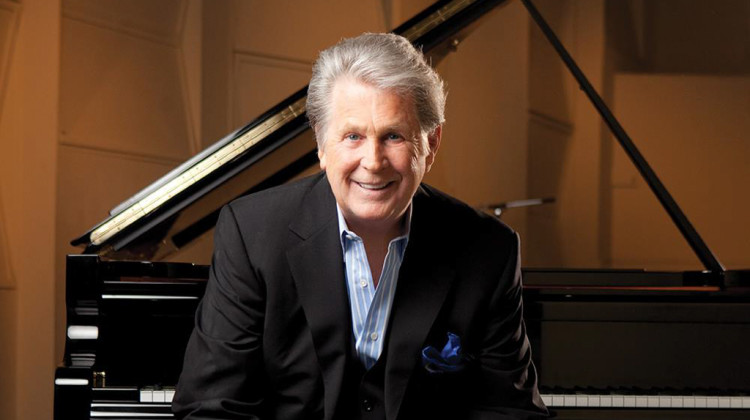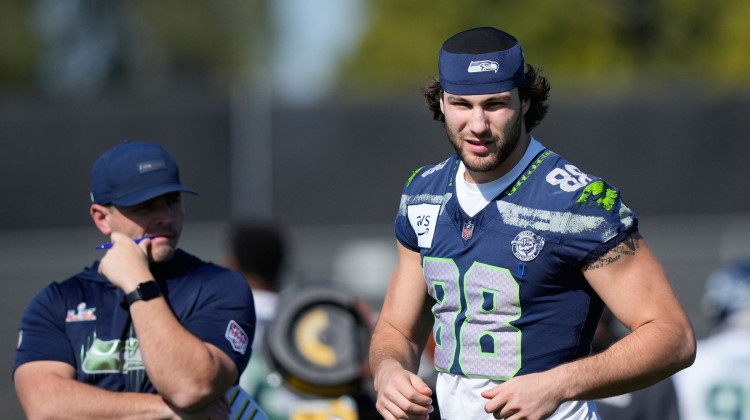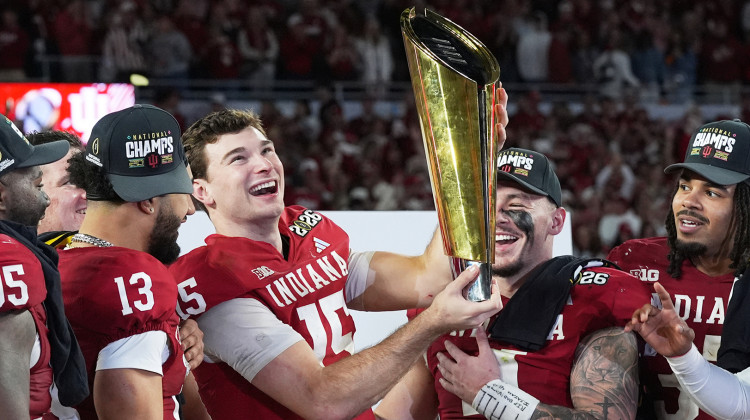
Brian Wilson credited the Four Freshmen as his main influence in crafting the Beach Boys’ sound.
Courtesy of Brian WilsonBrian Wilson, the visionary composer and producer behind the Beach Boys died on June 11th. He was 82 years old. Wilson leaves behind a legacy of music that reshaped the soundscape of American pop.
The Beach Boys first came together in 1961 under the name The Pendletones. The group included Wilson’s brothers Carl and Dennis, along with their cousin Mike Love. The band would go on to become one of the most critically acclaimed and commercially successful bands of all time, selling over 100 million records and charting 37 songs in the U.S. Top 40.
Much of that success was due to the visionary production style of Brian Wilson which included unorthodox instrumentation, innovative recording techniques, and of most notably the band’s iconic vocal harmonies.
Those trademark vocal harmonies, were directly inspired by the Indianapolis group The Four Freshmen. The Four Freshmen were formed on the campus of Butler University in 1948. The group featured brothers Don and Ross Barber of Columbus, Indiana; Bob Flanigan of Greencastle; and Hal Kratzsch of Warsaw. The Four Freshmen applied the progressive harmonies of modern jazz to group vocal singing, creating one of the freshest sounds in American popular music.
Brian Wilson credited the Four Freshmen as his main influence in crafting the Beach Boys’ sound. Wilson was such a big fan, he even recruited Four Freshmen arranger Dick Reynolds to work on several Beach Boys projects.
In 2017, WFYI’s Kyle Long spoke with Brian Wilson and they discussed his deep appreciation for The Four Freshmen.
This interview has been edited for style and clarity.
Long: Thank you for taking time to speak. I'm calling you from Indianapolis, Indiana, and I have to ask you about The Four Freshmen who were founded here in Indianapolis in 1948 on the campus of Butler University. I know this group was an enormous influence on you, and I wondered how you first encountered their music?
Wilson: Well, in 1958 I heard their albums, and I learned how to sing high by Bob Flanigan their high singer, I learned how to sing falsetto, and then I wrote “Surfer Girl."
Long: That was inspired directly by the influence of The Four Freshmen?
Wilson: Right.
Long: The Four Freshmen were founded by Ross and Don Barbour, who were brothers, and Bob Flanigan who was their cousin. So I wondered if that kind of that family oriented vibe of the group resonated with you as you gathered up your brothers and cousin to start The Pendletones way back in the day? did that family sound mean anything to you?
Wilson: Yeah, well, we didn’t copy The Four Freshmen, but I learned how to give the guys parts by listening to The Four Freshmen and they took to it very easily.
Long: I think we share the same favorite Four Freshmen record. I read that the 1955 album "The Four Freshmen and Five Trombones" is one of your favorites, and that was the first record you ever bought. Is that right?
Wilson: Yeah. I bought it at a record store in Hawthorne. I played it, and I was so, so happy to hear it. It was a great album.
Long: Bob Flanigan was the longest surviving original member of The Four Freshman. He was born in Greencastle, Indiana in 1926 and passed away in 2011. Did you ever get to meet Bob Flanigan or any of the original The Four Freshmen?
Wilson: Yeah, I met him at a concert in Hollywood in 1958. I met him and The Four Freshmen. I was very nervous to meet him.
Long: Was he a fan of your music? Did he like how you took their sound and kind of made it your own?
Wilson: Yeah, I made it my own. They really taught me a lot about harmony
Long: The Four Freshmen arranger and trombonist Dick Reynolds is a guy that you worked with, right? You once stated, “He's a god to me.” You worked together on The Beach Boys’ 1964 Christmas album and an unreleased album in the 1970s called "Adult Child." You sought him out specifically for that Four Freshmen connection?
Wilson: That's right, Dick Reynolds taught me a lot more ranging vocals, very much.
This interview originally aired on WFYI's Cultural Manifesto.
 DONATE
DONATE







 Support WFYI. We can't do it without you.
Support WFYI. We can't do it without you.